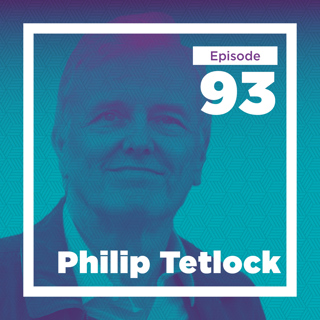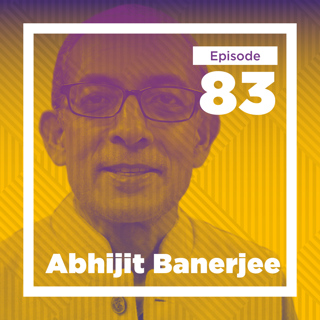
Adam Tooze on our Financial Past and Future
Adam Tooze is best known for his highly-regarded books on the economic history of Nazi Germany, the remaking of the global economic and political order starting in World War I, and his account of how the economic effects of the 2008 financial crisis rippled across the globe for a decade to follow. Recently, he’s become an influential voice on Twitter documenting the pandemic-induced strain on the world’s financial systems. Adam joined Tyler to discuss the historically unusual decision to have a high-cost lockdown during a pandemic, why he believes in a swoosh-shaped recovery, portents of financial crises in China and the West, which emerging economies are currently most at risk, what Keynes got wrong about the Treaty of Versailles, why the Weimar Republic failed, whether Hitler was a Keynesian, the political and economic prospects of various EU members, his trick to writing a lot, how Twitter encourages him to read more, what he taught executives at BP, his advice for visiting Germany, and more. Read a full transcript enhanced with helpful links, or watch the full video. Recorded April 16th, 2020 Other ways to connect Follow us on Twitter and Instagram Follow Tyler on Twitter Follow Adam on Twitter Email us: cowenconvos@mercatus.gmu.edu Subscribe at our newsletter page to have the latest Conversations with Tyler news sent straight to your inbox.
6 Maj 20201h 5min

Glen Weyl on Fighting COVID-19 and the Role of the Academic Expert
Glen Weyl is an economist, researcher, and founder of RadicalXChange. He recently co-authored a paper that sets forth an ambitious strategy to respond to the crisis and mitigate long-term damage to the economy through a regime of testing, tracing, and supported isolation. In his estimation the benefit-cost ratio is ten to one, with costs equal to about one month of continued freeze in place. Tyler invited Glen to discuss the plan, including how it’d overcome obstacles to scaling up testing and tracing, what other countries got right and wrong in their responses, the unusual reason why he’s bothered by price gouging on PPE supplies, where his plan differs with Paul Romer’s, and more. They also discuss academia’s responsibility to inform public discourse, how he’d apply his ideas on mechanism design to reform tenure and admissions, his unique intellectual journey from socialism to libertarianism and beyond, the common element that attracts him to both the movie Memento and Don McLean’s “American Pie,” what talent he looks for in young economists, the struggle to straddle the divide between academia and politics, the benefits and drawbacks of rollerblading to class, and more. Read a full transcript enhanced with helpful links, or watch the full video. Recorded April 20th, 2020 Other ways to connect Follow us on Twitter and Instagram Follow Tyler on Twitter Follow Glen on Twitter Email us: cowenconvos@mercatus.gmu.edu Subscribe at our newsletter page to have the latest Conversations with Tyler news sent straight to your inbox.
29 Apr 202055min

Philip E. Tetlock on Forecasting and Foraging as a Fox
Accuracy is only one of the things we want from forecasters, says Philip Tetlock, a professor at the University of Pennsylvania and co-author of Superforecasting: The Art and Science of Prediction. People also look to forecasters for ideological assurance, entertainment, and to minimize regret–such as that caused by not taking a global pandemic seriously enough. The best forecasters aren’t just intelligent, but fox-like integrative thinkers capable of navigating values that are conflicting or in tension. He joined Tyler to discuss whether the world as a whole is becoming harder to predict, whether Goldman Sachs traders can beat forecasters, what inferences we can draw from analyzing the speech of politicians, the importance of interdisciplinary teams, the qualities he looks for in leaders, the reasons he’s skeptical machine learning will outcompete his research team, the year he thinks the ascent of the West became inevitable, how research on counterfactuals can be applied to modern debates, why people with second cultures tend to make better forecasters, how to become more fox-like, and more. Read a full transcript enhanced with helpful links, or watch the full video. Recorded March 26th, 2020 Other ways to connect Follow us on Twitter and Instagram Follow Tyler on Twitter Follow Philip on Twitter Email us: cowenconvos@mercatus.gmu.edu Subscribe at our newsletter page to have the latest Conversations with Tyler news sent straight to your inbox.
22 Apr 202054min

Emily St. John Mandel on Fact, Fiction, and the Familiar
When Tyler requested an interview with novelist Emily St. John Mandel, he didn’t expect that reality would have in some ways become an eerie mirror of her latest books. And Emily didn’t expect that it’d be boosting sales: “Why would anybody in their right mind want to read Station Eleven during a pandemic?” she wondered to Tyler. Her reaction was pure bafflement until she found herself renting Contagion and thought about why. “There’s just such a longing in times of uncertainty to see how it ends.” Narratives, especially familiar ones, soothe us. It’s fitting then that her latest book has been suggested as “the perfect novel for your survival bunker.” She joined Tyler to discuss The Glass Hotel, including why more white-collar criminals don’t flee before arrest, the Post Secret postcard that haunts her most, the best places to hide from the Russian mob, the Canadian equivalent of the “Florida Man”, whether trophy wives are happy, how to slow down time, why she disagrees with Kafka on reading, the safest place to be during a global pandemic, how to get away with faking your own death, how A Canticle for Leibowitz influenced her writing, the permeability of moral borders, what surprised her about experiencing a real pandemic, how her background in contemporary dance makes her a better writer, adapting The Glass Hotel for a miniseries, her contrarian take on Frozen II, and more. Read a full transcript enhanced with helpful links, or watch the full video. Recorded March 27th, 2020 Other ways to connect Follow us on Twitter and Instagram Follow Tyler on Twitter Follow Emily on Twitter Email us: cowenconvos@mercatus.gmu.edu Subscribe at our newsletter page to have the latest Conversations with Tyler news sent straight to your inbox.
8 Apr 202055min

Ross Douthat on Decadence and Dynamism
For Ross Douthat, decadence isn’t necessarily a moral judgement, but a technical label for a state that societies tend to enter—and one that is perhaps much more normal than the dynamism Americans have come to take for granted. In his new book, he outlines the cultural, economic, political, and demographic trends that threaten to leave us to wallow in a state of civilizational stagnation for years to come, and fuel further discontent and derangement with it. On his second appearance on Conversations with Tyler, Ross joined Tyler to discuss why he sees Kanye as a force for anti-decadence, the innovative antiquarianism of the late Sir Roger Scruton, the mediocrity of modern architecture, why it’s no coincidence that Michel Houellebecq comes from France, his predictions for the future trajectory of American decadence – and what could throw us off of it, the question of men’s role in modernity, why he feels Christianity must embrace a kind of futurist optimism, what he sees as the influence of the “Thielian ethos” on conservatism, the plausibility of ghosts and alien UFOs, and more. Read a full transcript enhanced with helpful links. Recorded February 25th, 2020 Other ways to connect Follow us on Twitter and Instagram Follow Tyler on Twitter Follow Ross on Twitter Email us: cowenconvos@mercatus.gmu.edu Subscribe at our newsletter page to have the latest Conversations with Tyler news sent straight to your inbox.
25 Mars 20201h 7min

Russ Roberts and Tyler on COVID-19
Tyler and Russ Roberts joined forces for a special livestreamed conversation on COVID-19, including how both are adjusting to social isolation, private versus public responses to the pandemic, the challenge of reforming scrambled organization capital, the implications for Trump’s reelection, appropriate fiscal and monetary responses, bailouts, innovation prizes, and more. Read a full transcript enhanced with helpful links, or watch the full video. Recorded March 18th, 2020 Other ways to connect Follow us on Twitter and Instagram Follow Tyler on Twitter Follow Russ on Twitter Email us: cowenconvos@mercatus.gmu.edu Subscribe at our newsletter page to have the latest Conversations with Tyler news sent straight to your inbox.
19 Mars 20201h 19min

John McWhorter on Linguistics, Music, and Race (Live at Mason)
Who can you ask about the Great American Songbook, the finer Jell-O flavors, and peculiar languages like Saramaccan all while expecting the same kind of fast, thoughtful, and energetic response? Listeners of Lexicon Valley might hazard a guess: John McWhorter. A prominent academic linguist, he’s also highly regarded for his podcast and popular writings across countless books and articles where often displays a deep knowledge in topics beyond his academic training. John joined Tyler to discuss why he thinks that colloquial Indonesian should be the world's universal language, the barbaric circumstances that gave rise to Creole languages, the reason Mandarin won't overtake English as the lingua franca, how the Vikings shaped modern English, the racial politics of Gershwin's Porgy and Bess, the decline of American regional accents, why Shakespeare needs an English translation, Harold Arlen vs. Andrew Lloyd Webber, whether reparations for African-Americans is a good idea, how living in Jackson Heights shapes his worldview, what he learned from his mother and father, why good linguistics students enjoy both Russian and Chinese, and more. Read a full transcript enhanced with helpful links. Recorded February 17th, 2020 Other ways to connect Follow us on Twitter and Instagram Follow Tyler on Twitter Follow John on Twitter Email us: cowenconvos@mercatus.gmu.edu Subscribe at our newsletter page to have the latest Conversations with Tyler news sent straight to your inbox.
11 Mars 20201h 18min

Garett Jones on Democracy (More or Less)
Why is Garett Jones willing to write books about risky topics like the case for reducing democratic accountability? Is it the iconoclastic Mason econ culture? Supportive colleagues like Tyler? Those help, but what ultimately gives Garett peace of mind is that he’ll never have to go hungry because he has a broad and deep knowledge of econometric tools. It’s a skillset he recommends to all research economists precisely so they can take bigger risks in their careers—or at least be well-prepared to shape policy in an unelected position at a central bank. Garett joined Tyler to discuss his book 10% Less Democracy, including why America shouldn’t be run by bondholders, what single reform would most effectively achieve more limited democracy, how markets shape cognitive skills, the three important P’s of the repeated prisoner’s dilemma, why French cuisine is still underrated, Buchanan vs. Tullock, Larry David vs. Seinfeld, the biggest mistake in Twitter macroeconomics, the biggest challenges facing the Mormon church, what studying to be a sommelier taught him about economics, the Garett Jones vision of America, and more. Read a full transcript enhanced with helpful links. Recorded January 10th, 2020 Other ways to connect Follow us on Twitter and Instagram Follow Tyler on Twitter Follow Garett on Twitter Email us: cowenconvos@mercatus.gmu.edu Subscribe at our newsletter page to have the latest Conversations with Tyler news sent straight to your inbox.
26 Feb 202056min






















